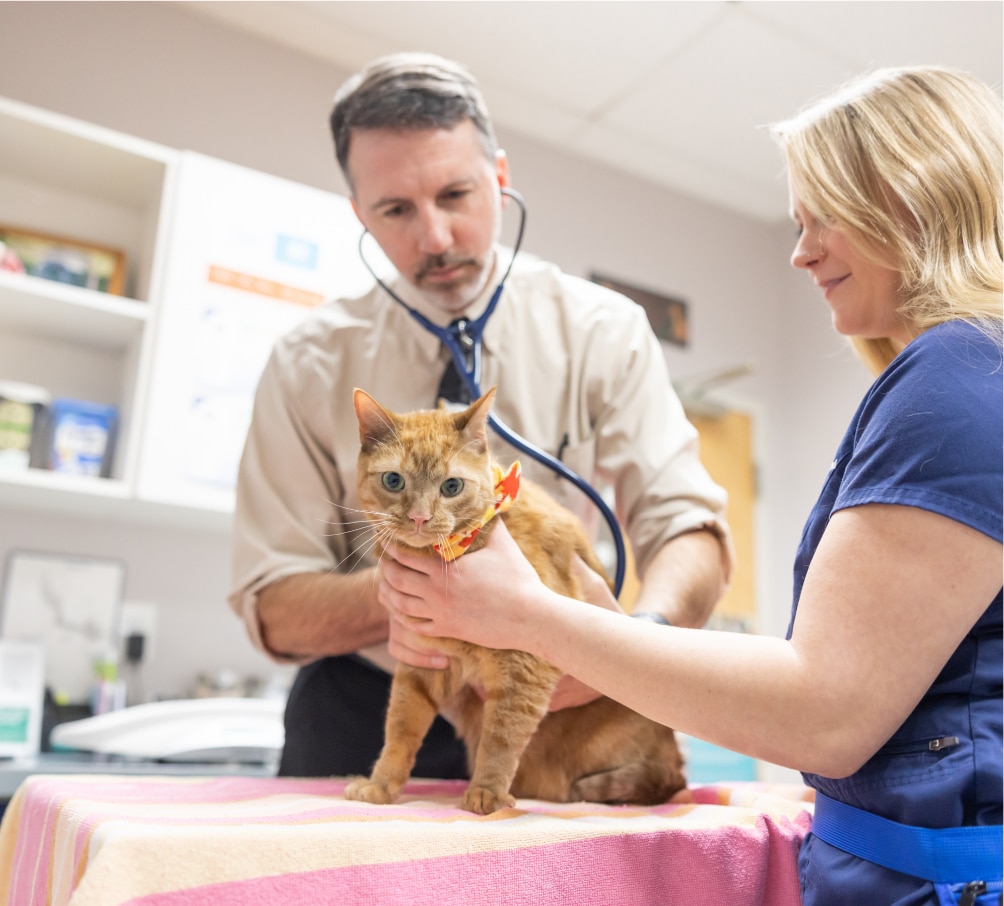For many, their pet is their first “child.” You take good care of them, bring them to doctor appointments, make sure they eat balanced meals, and worry about them when they are not feeling well. Your furry companion is an important part of your family.
When adding a baby to the family, despite a pet owner’s best efforts, the dynamics between humans and their pets will change.
It can be a confusing time for the family pet, who was once the center of your world, to suddenly receive less attention. As new parents, you may worry about how your pet will react to the change.
How do you get your baby and your furry friend acclimated to each other so you all can coexist in this lovely new normal?
Getting Used to Sounds
Cats especially can become distressed by a baby’s crying.
Before your baby arrives, softly play a recording of baby cries frequently throughout the day. Slowly increase the volume each time your pet seems to get comfortable with the noise.
By the time your baby comes home, your pet will not be fazed by unpredictable cries.
Introduce New Environments Slowly
One of the most fun parts of having a baby is decorating the nursery. You may be tempted to make all the drastic changes all at once, but it is better to take it slow.
Family pets thrive on consistency, so they will need a chance to get used to each new change. Try painting the walls first, then slowly add new items to the room.
Stretch the transformation out over a few weeks if you can.
Obedience Training
It is really important to take the time of your pregnancy to work on any undesirable behaviors your dog may have. If you don’t have basic commands down, now is the time to do so.
Once your dog can understand sit, down, and stay, start practicing those commands while pretending to do baby things. Try a down-stay command when rocking a baby doll or when walking into the nursery. The more you practice, the more likely your dog will keep its distance when needed.
If necessary, bring in a professional to help your pet get these commands down. It may cost you some money, but ultimately the cost will be worth it to take the stress off you.
Teach Off-Limit Zones
If you do not want pets in the nursery, start training them now to stay out of the space. Telling your pet “no” or to sit and stay when you walk into the room are good ways to let them know the area is off-limits.
With cats, it is a little more tricky. You may want to install a cat-proof gate, or simply keep the nursery door shut at all times so pets cannot enter.
Familiarize Your Pet With Baby’s Scent
If the baby is born in a hospital, you both may be there for a couple days.
This is a great time for someone to bring a blanket with the baby’s scent to the house. Let your pet sniff at the blanket, and leave it in a space that they frequent so they can become familiar with it.
Introducing Your Baby to the Family Pet
If you can, have someone take your dog on a walk, or wear them out with play. A tired dog is less likely to try to jump all over you when you walk in, and potentially hurt the baby.
You should have one person be responsible for your pet, and one be responsible for the baby. One person should not do both at the same time, as it can result in injury and extra stress.
Start 20 feet away, and then walk out of the room with the baby. When your pet is calm, you can try 15 feet, then 10 feet. Eventually you will get close enough so your pet can sniff the new baby. Keep close supervision at all times! The wiggling of a baby could trigger a predatory response, and you want to be able to separate them from each other if that happens.
Before you know it, your pet will realize the baby is here to stay. The cries, smells, and movements will no longer cause your pet anxiety, and you will see your pet and your baby develop their very own relationship.
Quality Pet Care in Frederick, MD
A healthy pet is a happy pet! The experts at Old Farm Vet are here not only to address your concerns for your pet’s physical health, but also their mental and emotional well-being. We are happy to give you ideas on ways to set yourself up for success with your pet in the event of big changes. Our veterinarians are well-trained in dealing with all kinds of pets and temperaments and are happy to answer your questions. Schedule an appointment for your pet today!



